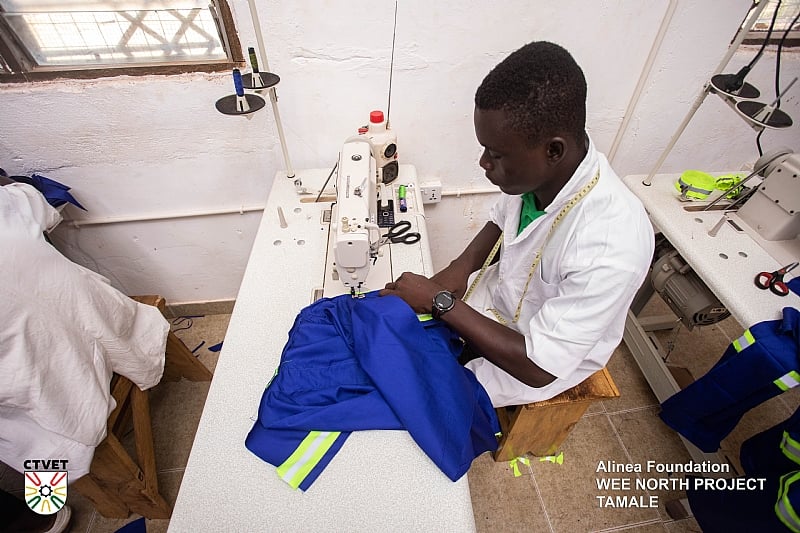TAMALE – Ghana’s informal sector, historically reliant on traditional apprenticeship systems, is receiving a transformative boost through the Ghana TVET Voucher Project (GTVP), a collaborative initiative between the Government of Ghana and the German Government via KfW. This project is helping artisans modernise their skills, gain national recognition, and align with emerging technological demands.
During a recent field visit to the Northern Region, Mr. Albert Opare, Head of Corporate Affairs at the Commission for TVET (CTVET), visited three GTVP training centres—Dabokpa Technical Institute, Tamale Community Development Vocational and Technical Institute, and Modern Star Integrated School. He met with training providers, apprentices, and master craft persons to assess the project’s implementation and impact.
In Ghana, traditional apprenticeship is the predominant mode of skill acquisition in the informal sector, accounting for more than 90% of workforce development. However, these systems, while deeply rooted, often lack exposure to modern tools and techniques and do not offer certifications that are recognized within the formal education system. This has denied many young artisans a pathway to professional or academic advancement.
The GTVP addresses these gaps by introducing Competency-Based Training (CBT) through accredited institutions. This modular approach blends on-the-job training with classroom instruction, resulting in National Proficiency Level I or II certifications under the National TVET Qualifications Framework.
“I never thought I’d be certified for the work I’ve done all my life,” said one master craftsperson at Tamale CDVTI. “But now I feel respected, professional, and ready to grow my business.” An apprentice added, “The safety training has made my workshop safer for everyone. And now I know my skills can take me further.”
Training providers commended the project for its practical benefits. Apart from financial support, the GTVP prompted them to register with CTVET and complete the accreditation process—ensuring full regulatory compliance and improved service delivery. “The project has professionalized our institution,” said a representative from Dabokpa Technical Institute. “We are now more aligned with national education standards.”
Mr. Opare emphasized the larger policy reform behind the project. “The GTVP is driving the modernisation of Ghana’s apprenticeship system by integrating it into the formal TVET sector. It’s building a bridge between informal learning and recognised qualifications,” he noted.
He further highlighted how the project is contributing to a broader TVET system reform: encouraging registration with CTVET, promoting CBT on a large scale, and establishing financially sustainable accreditation systems. “We are also developing a comprehensive database of TVET stakeholders, enabling targeted policy interventions and coordinated growth.”
As more institutions across the country embrace this reform, the GTVP stands as a symbol of inclusive, forward-thinking policy—bringing dignity to traditional craftsmanship, restoring confidence in the informal workforce, and creating structured pathways to lifelong learning and economic opportunity.


